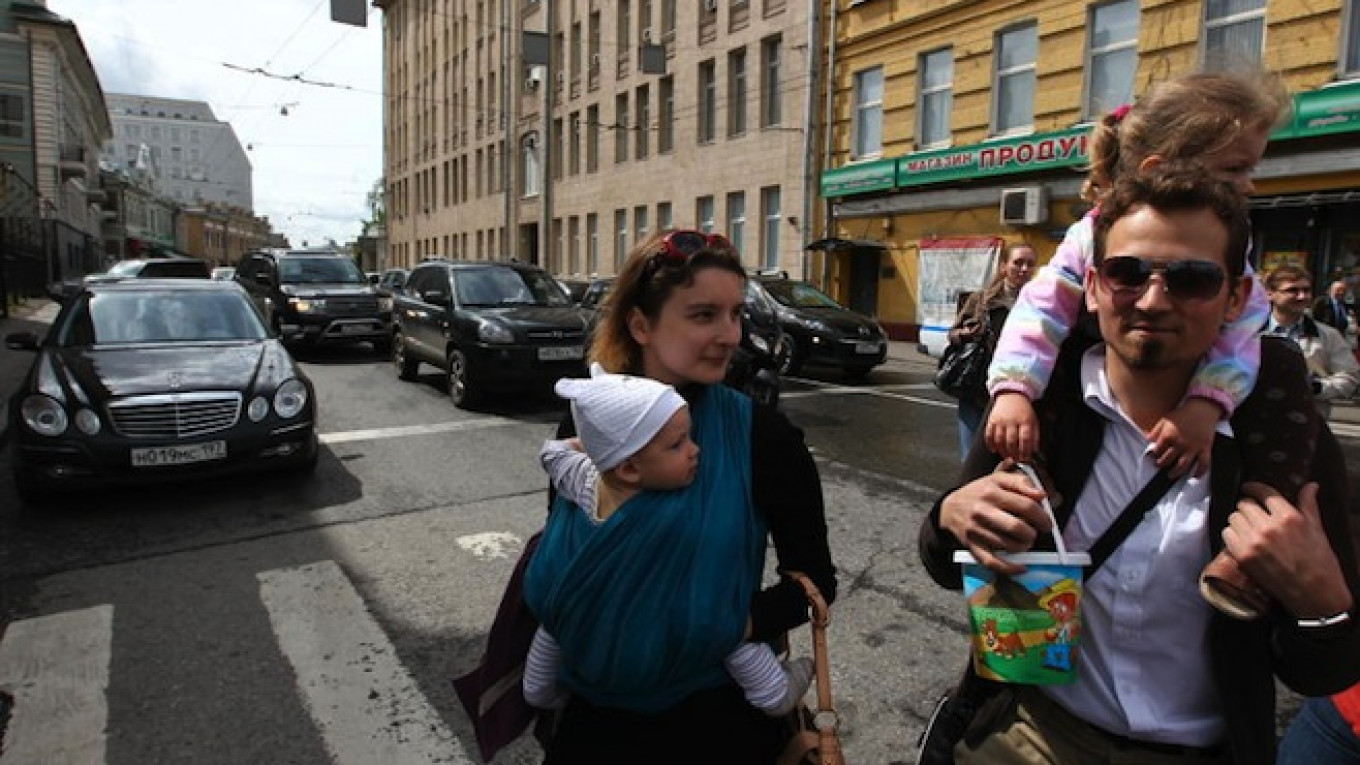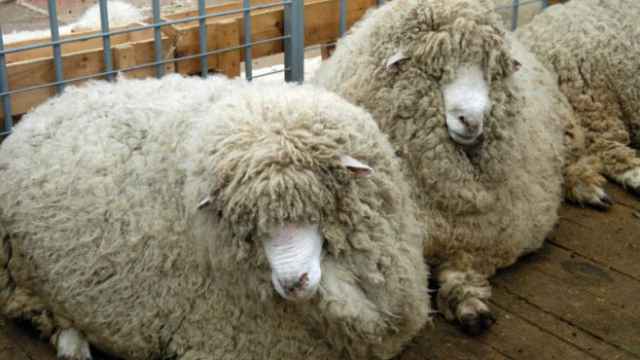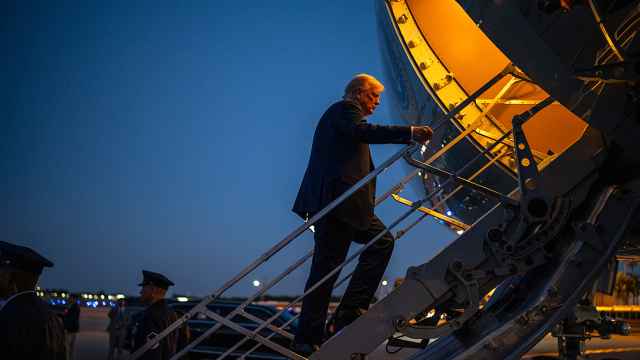Residents of the Russian capital are having more children and having them closer together — a trend that may increase as the state continues to fight the country's demographic crisis and promote traditional family values.
"While in the beginning of 2014 there were 90,000 families with three or more children in Moscow, in 2015 there are 104,000," Tatiana Barsukova, the deputy head of the Moscow Department of Social Security told The Moscow Times.
According to Natalia Karpovich, a mother of six and the chairperson of the Union of Families with Many Children of Moscow, the trend is only Russia returning to its roots, since big families were traditional before the Revolution.
"The average age difference between siblings in large families now is around three years," Karpovich said. "Families tend to have siblings sooner than in the Soviet times since there are fewer problems with housing now. People have enough space to live and there is also effective state support and promotion of family values."
In the early Soviet era, often people lived in "kommunalki" — apartments shared by many families with separate sleeping quarters, but shared kitchens and bathrooms. Later, families were given separate apartments, but they were very small. In such circumstances, couples preferred to have one child first, then wait to have a second when they had more or better living space. It was not uncommon for there to be an age difference of 10 years or more between Soviet siblings.
State support
"I decided not to take a long break between the birth of my children. I wanted them to have a closer relationship than I have with my brother, who is six years older," Anastasiya Andriyevskaya, 36, told the Moscow Times. Andriyevskaya has three children — seven, four and 18 months. "I also feel financially stable in Moscow. We have a lot of support like free milk, baby food, money, free theater tickets and so on."
In addition to these small perks, Moscow families with three children or more receive a payment of 18,000 rubles ($333) each month from the government.
At the federal level, the state provides a woman who gives birth to or adopts a second or third child a "Mother's capital" of 456,026 rubles ($8,370). The use of the money is restricted, but can be applied to buying a place to live or saved for the child's education.
Vladimir Petrosyan, head of the Moscow Department of Social Protection, and his deputy Barsukova have both called large families a "fashionable trend," while President Vladimir Putin called for the large family to become "symbol of Russia" at the meeting of Presidential council on the implementation of priority national projects and demographical politics in 2013.
Said Barsukova, "It's not only state support, but also the encouragement to have more children that is changing people's minds," adding that her department organizes TV spots with big families telling positive stories about their lives.
The involvement of the state in promoting large families does play an important role, according to Natalia Karpovich. "I think the nation is saving itself — they told us about demographic crisis, then we started to give birth more actively," she told the Moscow Times, adding that 80 percent of large families in Moscow have three children, but there are 125 families with 10 children or more.
Anastasiya Andriyevskaya see motherhood as her main mission in life, although she also has a job as a personal assistant that she carries out mostly from home. "If necessary, I visit the office with my youngest one in sling backpack. I see no problem having a lot of children in Moscow, no problem at all!"
A Message from The Moscow Times:
Dear readers,
We are facing unprecedented challenges. Russia's Prosecutor General's Office has designated The Moscow Times as an "undesirable" organization, criminalizing our work and putting our staff at risk of prosecution. This follows our earlier unjust labeling as a "foreign agent."
These actions are direct attempts to silence independent journalism in Russia. The authorities claim our work "discredits the decisions of the Russian leadership." We see things differently: we strive to provide accurate, unbiased reporting on Russia.
We, the journalists of The Moscow Times, refuse to be silenced. But to continue our work, we need your help.
Your support, no matter how small, makes a world of difference. If you can, please support us monthly starting from just $2. It's quick to set up, and every contribution makes a significant impact.
By supporting The Moscow Times, you're defending open, independent journalism in the face of repression. Thank you for standing with us.
Remind me later.






